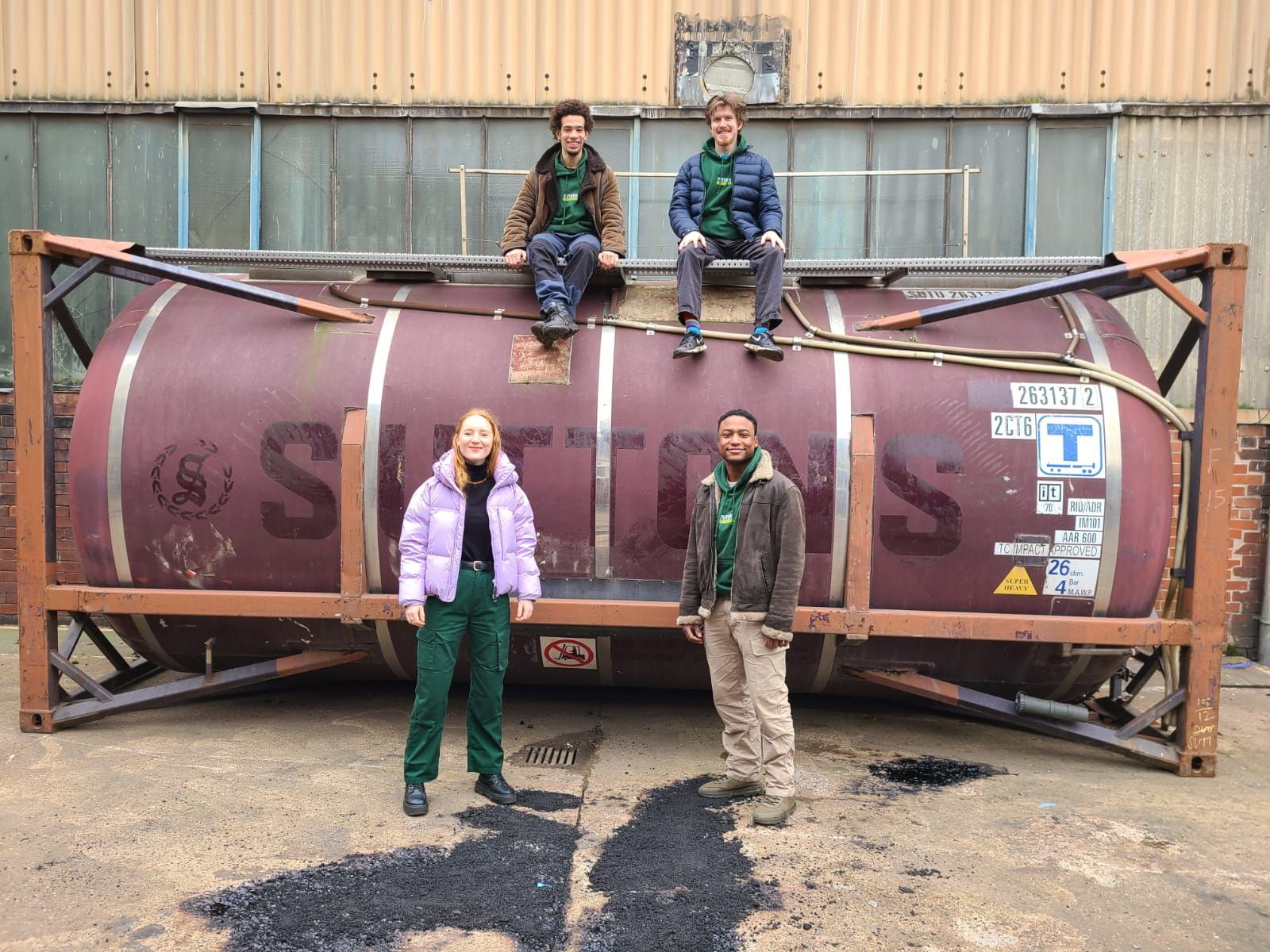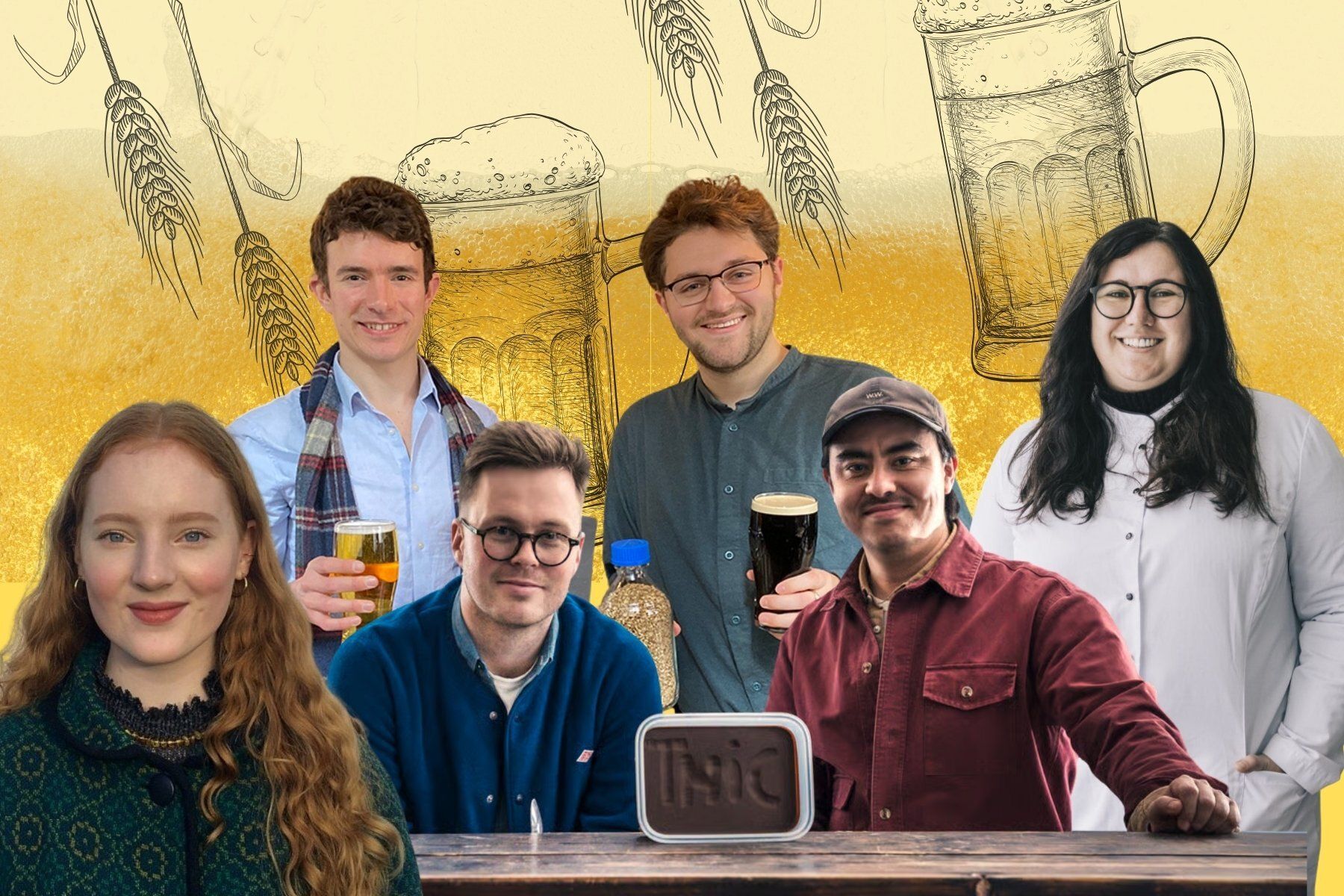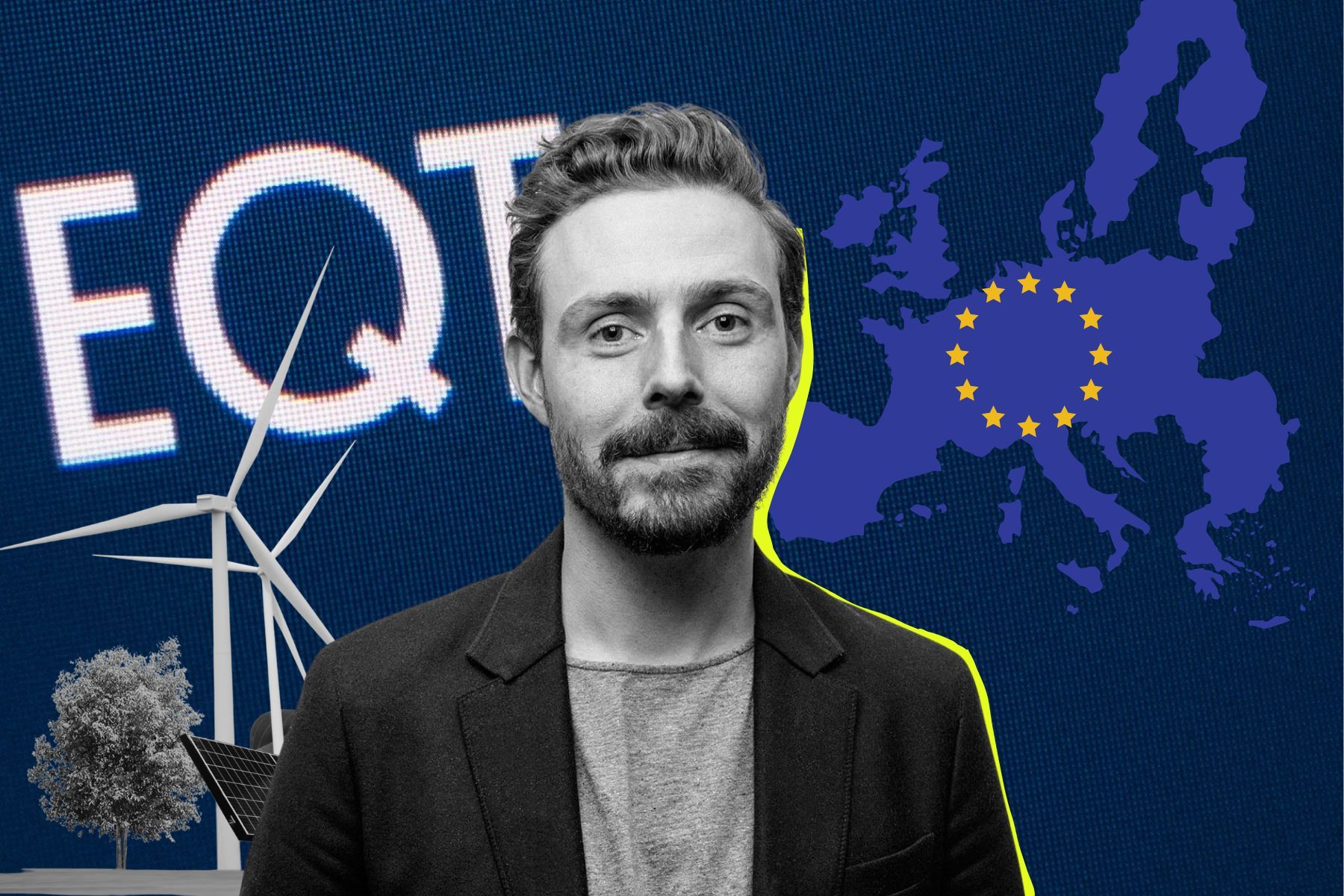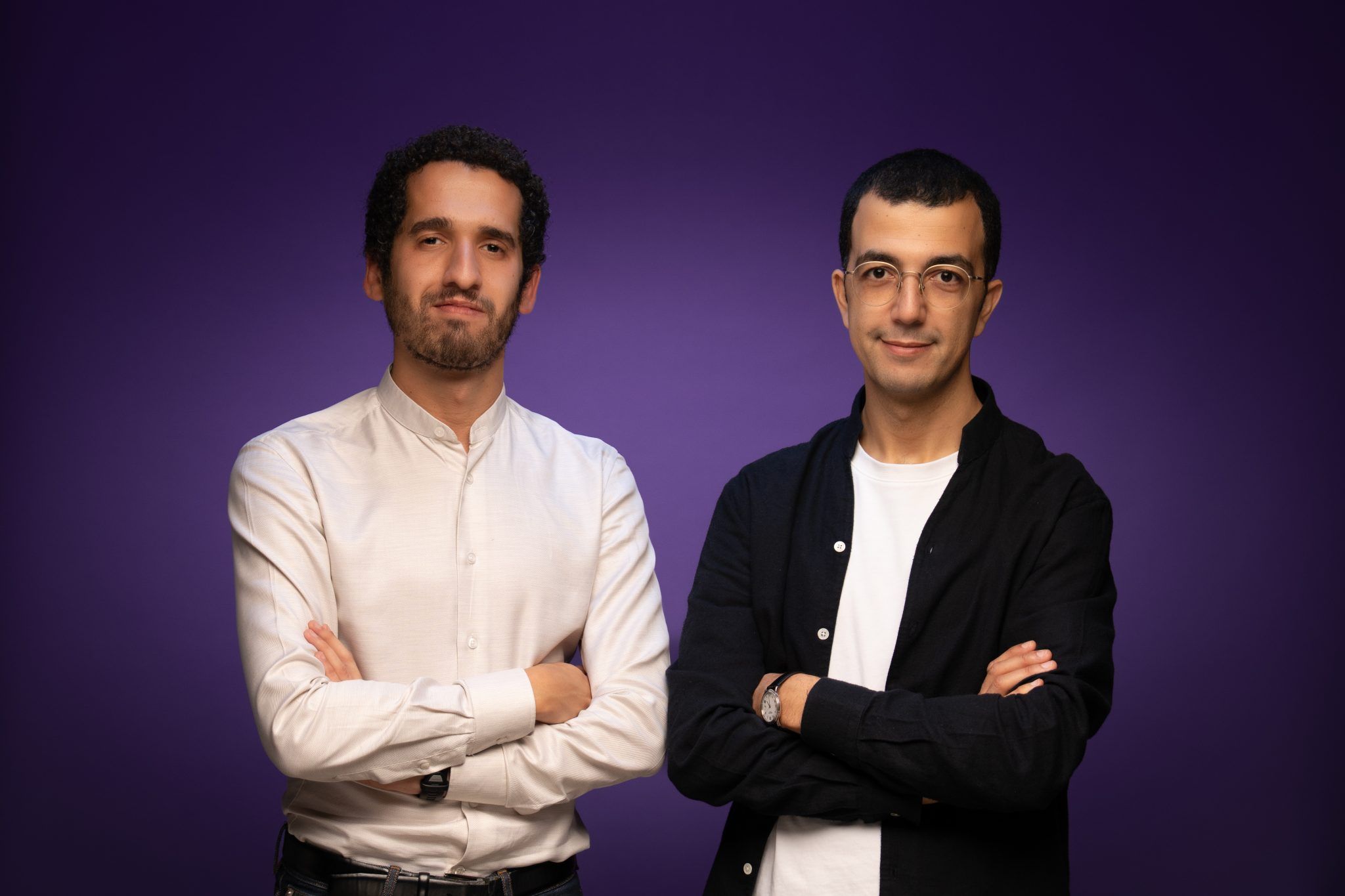Pints to profits: The European startups giving beer waste a second life
Your last pint could mean profits for a new cohort of European startups. <br><br>From the UK to Estonia, early-stage ventures are turning beer waste into everything from leather and chocolate to renewable energy. <br><br>We’ve dug into seven brewery waste upcyclers – many of which are now looking for funding to scale up.<br>
.png)

Globally, around 40 million tonnes of brewery waste is produced each year – enough to fill around 50 average-sized football stadiums. As we drink more beer, that waste is expected to pile-up even further.
That’s a big problem – or a lot of feedstock depending which way you slice it (or drink it).
“The beer industry generates an abundance of organic by-products that are valuable, yet notoriously difficult to dispose of,” Gabrielė Barteškaitė, co-founder of Future Greens, tells Impact Loop.
The UK-based startup is building a bioreactor that turns spent grain from the brewery industry into renewable energy.

Future Greens, spun-out from the University of Sheffield, recently completed the first trial of its technology at a local brewery house in the north England city.
According to Barteškaitė, the waste-to-energy system can enable breweries to cut half of their energy needs.
Future Greens has raised around €300K in a mix of venture capital and grants, and is now looking for seed funding to accelerate its growth. It’s joining a crop of startups – some new, some more mature – developing clever (and sometimes delicious) uses for the world's mounting pile of beer waste.
Endless Food Co. (Denmark)
Chocolate lovers, meet the bar that’s brewed, not beaned.
Endless Food Co., founded in 2021 by three Danish chefs and entrepreneurs, uses spent grain from breweries to produce cacao-free chocolate. The grain is fermented to develop chocolate-like flavors, which are then processed into bars and other treats.
This approach looks to reduce emissions tied to conventional cocoa production while giving spent grain a sweet second act. The startup recently secured €1m in seed funding to scale production and is forging partnerships with breweries to secure a steady supply of raw material.
Arda Biomaterials (UK)
From chocolate to chic: Arda Biomaterials, established in 2022 by material scientists and designers Brett Cotten and Edward "TJ" Mitchell, turns spent brewery grain into a flexible, durable leather alternative. Their material can be used in fashion, automotive interiors, and home goods, and aims to offer a stylish and eco-friendly substitute for animal leather.
Currently in the prototyping phase, Arda is seeking manufacturing partners to bring their products to market. In April, the company secured a £4m (€4.5m) seed round led by Germany’s Oyster Bay Venture Capital. Clean Growth Fund, Kadmos Capital and Green Angel Ventures also chipped in.
Onmatter (Germany)
Three science students from the Technical University of Munich – Mauricio Fleischer Acuña, Marlene Stechl, and Thomas Rojas Sonderegger – founded Onmatter (formerly HopfON) in 2022.
Their research found that for every kilogram of hops used in brewing, around 3.5 kilograms of plant biomass – leaves, vines, and stems – is discarded. So the team started experimenting with turning it into construction materials like acoustic panels, insulation, and building boards. Their patent-pending method uses the plant’s natural binding agents, avoiding artificial additives and keeping everything recyclable.
The company is currently scaling from lab prototypes to real-world products and exploring using other organic materials alongside hop waste.
YeastUp (Switzerland)
If spent hops are getting a second life in buildings, YeastUp is doing the same with yeast. Founded in 2021 by Dr. Thomas Huber, the Swiss startup transforms brewer’s spent yeast into high-value proteins and fibers for sustainable food products.
Their proprietary process isolates these components, which are sold as “UpProtein” and “UpFiber,” helping reduce the environmental footprint of food production. In 2024, they raised CHF 8.9m (€9.5m) to build a new production facility capable of upcycling over 20,000 tons of brewer’s yeast each year.
ÄIO (Estonia)
ÄIO, founded in 2021 by biotech engineers Dr. Nemailla Bonturi and Dr. Petri-Jaan Lahtvee, extracts lipids from agricultural residues – including brewery by-products – and refines them into oils and fats. These sustainable products can be used in food, cosmetics, and industrial applications, offering a circular alternative to conventional oils.
Currently in the pilot phase and seeking investment to scale, ÄIO is turning low-value waste into high-value products.
Revyve (Netherlands)
Who knew that what you leave behind at happy hour could end up in your omelet?
Founded in 2019 by Edgar Suarez Garcia and Corjan van den Berg, Revyve converts brewer’s spent yeast into egg replacements and food additives. Proteins are extracted from the yeast and formulated to mimic the functional properties of eggs in cooking and baking.
Revyve is targeting plant-based and allergen-free markets, scaling production, and partnering with food manufacturers. It recently raised €24m in new funding to scale beyond Europe and into North America and Australia.
Get full access to Europe's new platform for impact news
- Quality journalism, interviews, investor profiles and deep-dives
- Daily newsletter with top stories, latest funding rounds and roundup to keep you in the loop
Keep reading – get in the loop!
- Håll dig i loopen med vårt dagliga nyhetsbrev (gratis!)
- Full tillgång till daglig kvalitetsjournalistik med allt du behöver veta inom impact
- Affärsnätverk för entreprenörer och investerare med månatliga meetups
Fortsätt läsa – kom in i loopen!
- Håll dig i loopen med vårt dagliga nyhetsbrev (gratis)!
- Full tillgång till daglig kvalitetsjournalistik med allt du behöver veta inom impact
- Affärsnätverk för entreprenörer och investerare med månatliga meetups









